Watch the full KARE 11 Investigates report, Thursday at 10 p.m. on KARE 11 News.
Mayo Clinic, one of the nation’s most prestigious medical centers, is being sued for allegedly failing to properly inform a heart transplant patient of risks including critical details about the donated organ. Mayo has denied the allegations.
Noah Leopold’s family is suing the clinic in Rochester for medical negligence, negligent nondisclosure and medical battery. Medical records reveal a donor’s heart “fell apart” during a 2023 transplant surgery – after his existing heart had already been removed. Their lawsuit claims Mayo “concealed” important information.
In court filings, Mayo denies it did anything wrong. In a statement to KARE 11, Mayo said in part, “We follow applicable medical standards of care, guidance of national organizations that oversee organ donation and procurement, and the privacy rights of organ donors who give the ultimate gift to patients.”
The failed transplant could have been caused by a high-tech medical device used to transport donor hearts nationwide, according to deposition testimony by a Mayo surgeon. However, KARE 11’s review of public records finds that Mayo doctors have yet to report the event to federal officials who monitor the safety of medical devices.
Chapter 1
A lifelong battle
Noah Leopold battled medical issues since childhood. “At the age of 7, he got cancer,” his father Norman said.
He fought – and won. He graduated summa cum laude, married his wife Michelle, and joined a law firm founded by his father and his mother Karen.
But Noah also spent his life battling complications from the chemotherapy he endured as a child, including damage to his heart.


For nearly a decade, he had been traveling to Rochester’s Mayo Clinic where his heart condition was being monitored by experts. By the time he turned 40, Mayo doctors said he needed a heart transplant.
“I mean the confidence we had in Mayo was extraordinary,” Noah’s father told KARE 11. “We really believed we were at the best place in the world.”
“We put Noah’s life in their hands,” his mother added.
Chapter 2
A perfect heart
On August 16, 2023, Noah was admitted to Mayo’s St. Mary’s Hospital to prepare for the transplant. His mother and father traveled to Rochester to be with him.
Although he needed a new heart, his family says he was told it was not an emergency.
“We have the luxury of time in waiting for a good one,” a Mayo ICU doctor told Noah and his parents in a meeting his mother recorded on her phone rather than trying to take notes.
“They’re not going to take the first one that comes along if it’s questionable,” Dr. Bradley Ternus told them in the videotaped conversation, referring to the transplant team. “We want to get you the perfect one.”
For Noah a ‘perfect heart’ meant it could not come from someone who had died from a drug overdose.


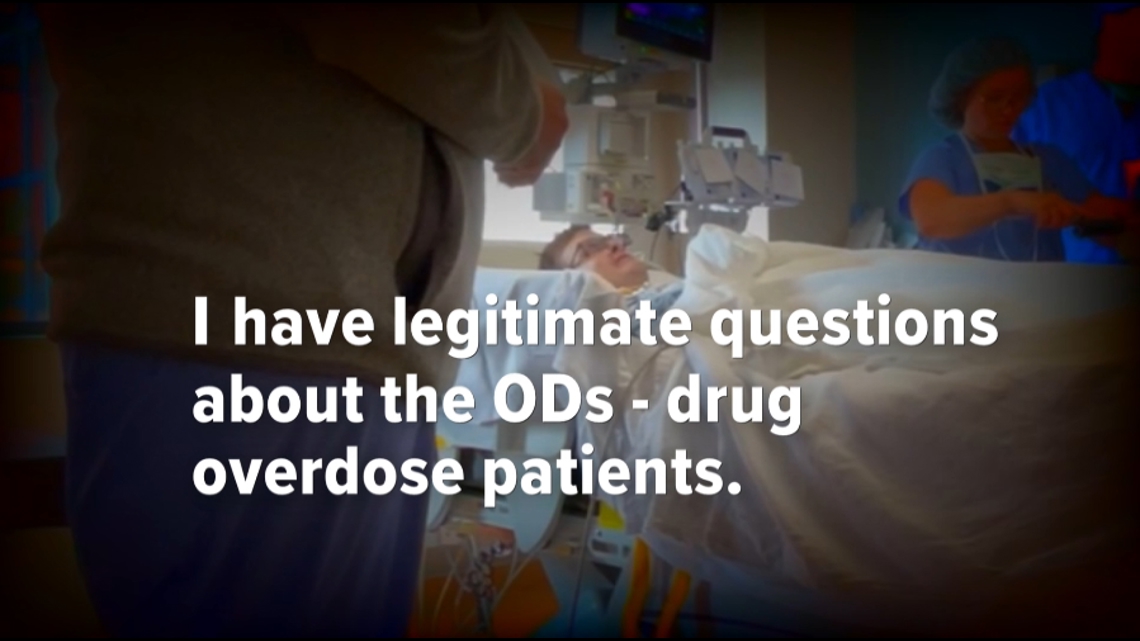

“I have legitimate questions about the ODs – drug overdose patients,” Noah said on the recording.
“Generally, they won’t accept donations from high-risk donors without a conversation,” Dr. Ternus explained. “Anyone who’s, you know, had a drug overdose or something like that is considered a high-risk donor, just because of the lifestyle.”
“The transplant team knows you well,” Dr. Ternus assured him. “They’re not going to take a marginal heart.”
Chapter 3
Uncontrollable bleeding
Thirteen days later – on August 29 – Mayo told Noah a donor heart was available.
“We were told that this was a perfect heart,” his father remembers. “And one of the doctors said, ‘I would give this heart to my family if they needed it.’”
As the donor heart was rushed to Rochester, Noah was taken into surgery.
Records show one of Mayo’s top doctors – Dr. Mauricio Villavicencio, Surgical Director of Heart & Lung Transplantation in Rochester – removed Noah’s heart.
“And then something horribly went wrong,” Noah’s father said.


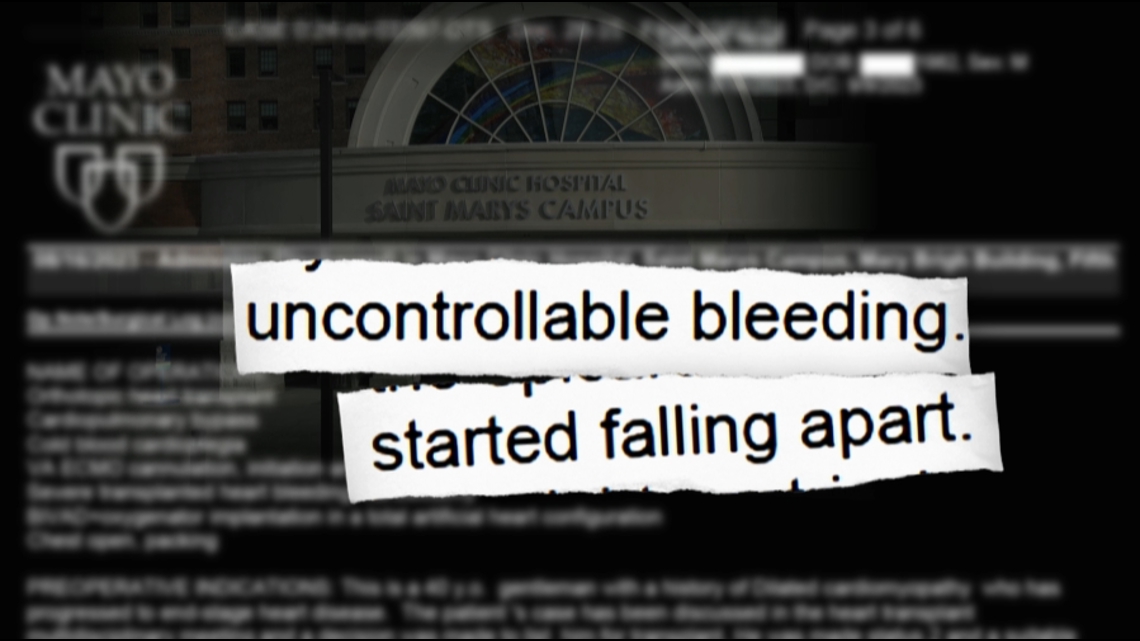

The first problem? Dr. Villavicencio’s medical notes say when the donor heart arrived in the operating room, he discovered it “was large and there was a significant mismatch.”
He was able to adjust and “make it fit” – but once in place, the heart itself started bleeding. Villavicencio’s notes described it as “uncontrollable bleeding.”
“We tried several hours to stop the bleeding but it was a futile effort,” he wrote.
Before long, his notes say the heart “started falling apart” – and had to be removed.
“They told us that the heart didn’t make it and that he didn’t have a heart at all,” Noah’s wife Michelle remembers.
Noah had to be kept alive with an artificial heart.
Chapter 4
Meth overdose
Days later, Mayo successfully transplanted a different heart. The next morning Noah suffered an unexpected brain bleed – and his family was forced to make the hardest of decisions.
“We never expected to leave without him,” his mother Karen said.
“The pain never goes away,” his father added.
Through their pain, Noah’s family began to ask questions. What happened – and why?
The answers would trace back to Idaho. To protect the heart donor’s identity, KARE 11 has decided not to reveal his name or information about the details of exactly where he died. However, public information about his death – including police reports and autopsy information – reveals the donor died of a drug overdose.
Police bodycam video KARE 11 obtained through a public records request revealed investigators found clear evidence of drug abuse.
“Heroin? Was it heroin?” an investigator asked.
“Meth. Meth overdose,” another replies.
An autopsy report obtained by KARE 11 confirmed he died of an “intracerebral hemorrhage due to methamphetamine intoxication.”


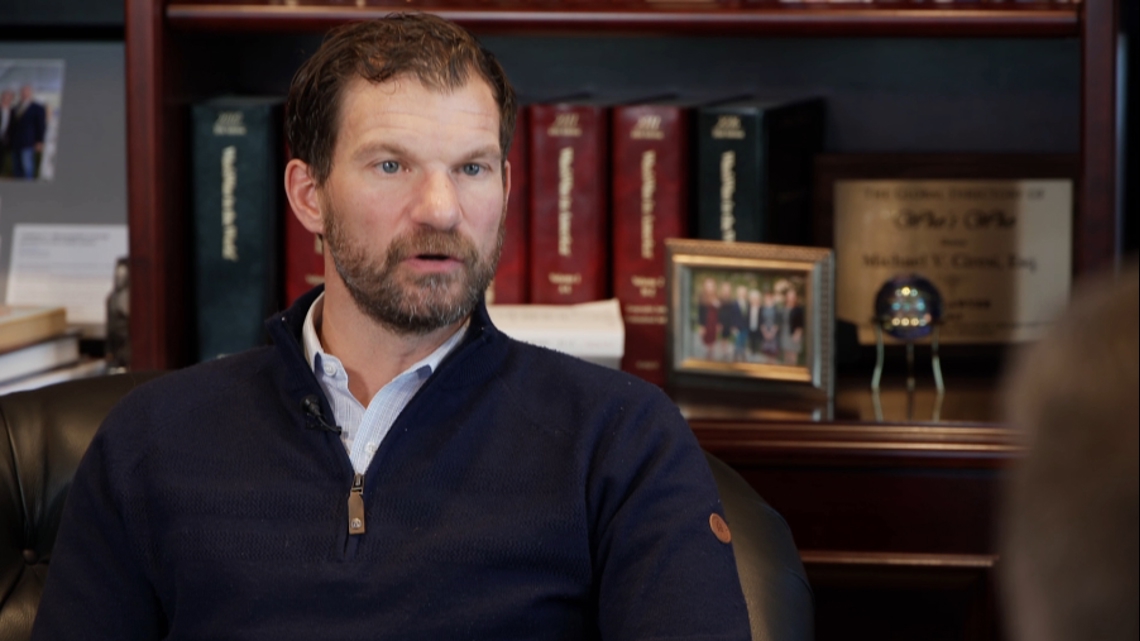

“Noah got the heart of a meth addict,” attorney Brandon Thompson said. Thompson filed the federal lawsuit on behalf of Noah’s family alleging that Mayo Clinic failed to tell Noah he was getting the very type of heart he did not want.
“Mayo had an obligation to tell him that. And they didn’t,” Thompson said.
“We all knew that that’s not what Noah would have wanted,” his wife Michelle told KARE 11.
In response to the lawsuit, Mayo has denied the allegations. They say they properly informed Noah the heart had risk factors for diseases like Hepatitis and HIV, he had no obligation to accept it, and he consented to the operation.
Mayo says it followed national transplant guidelines designed to protect donor confidentiality. They say that includes not disclosing a “specific diagnosis” or the “mechanism of injury or death” of the donor.
Chapter 5
Patient rights
The family’s lawsuit contends Noah did have a right to know the donor’s cause of death under Minnesota’s “Patients’ Bill of Rights” law.
“Minnesota law requires that patients be provided all of the information that they would find relevant to making an informed decision about their own health care,” attorney Thompson explained.
Thompson argues that since people nationwide die from overdoses every day, disclosing the heart was coming from an overdose victim would not have identified the donor.
The lawsuit claims the overdose death was not the only information Mayo failed to disclose.


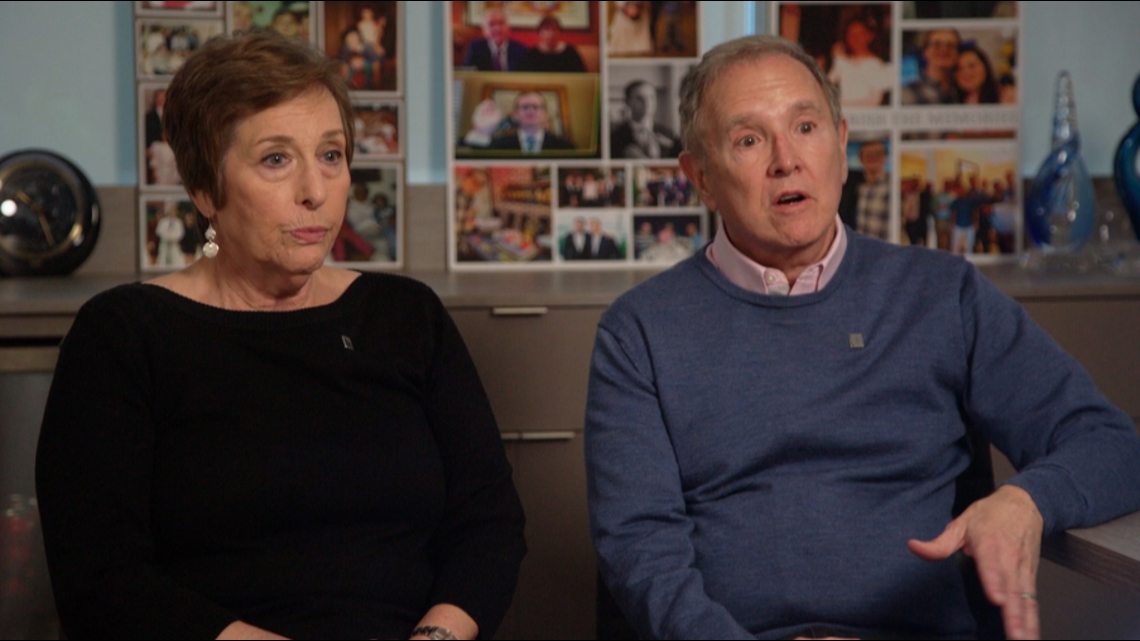

Remember, the autopsy concluded the donor died because of a brain hemorrhage due to methamphetamine intoxication.
Court records show Mayo doctors – including Dr. Villavicencio – had studied the survival rate of transplant patients who received hearts from donors who died because of bleeding within the skull.
A medical journal study they published in 2022 was titled “Heart Transplant Recipients of Donors with Intracranial Hemorrhage Have Worse Survival.” It concluded, “donors who die from intracranial hemorrhage should be considered with caution and should be matched carefully with the appropriate recipient.”
The family’s lawsuit claims Noah was never told about the possible additional risk.
Asked about the study, Dr. Villavicencio testified that the differences they found were not “clinically significant” and that “taking donors with intracranial hemorrhage is a standard practice.”
Chapter 6
Heart in a Box
Thompson contends there’s something else Mayo failed to tell Noah.
Instead of transporting a donor heart the way it had been done for years – a short distance preserved on ice – Mayo was using a high-tech device called an “Organ Care System” (OCS) often called a “Heart in a Box” system.
According to TransMedics, the device manufacturer, it “allows transplant teams to keep the organs alive, beating and breathing between the donor and recipient instead of storing them on ice.”
By keeping the heart active longer, the cutting-edge technology greatly expanded the pool of hearts available for transplant by increasing the travel time and distance between donors and recipients.
Doctors could use donated hearts from a much larger area – saving lives by reducing the number of patients who died waiting for a matching heart.


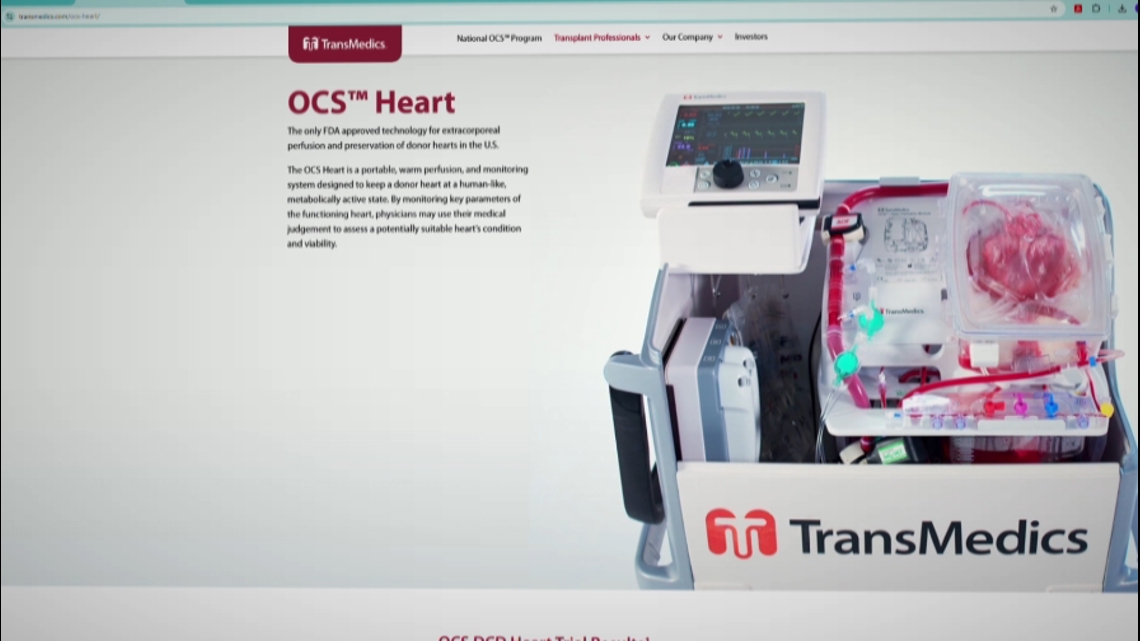

The FDA first approved the use of the “Heart in a Box” device in 2021, ruling that increasing the number of hearts available for transplant outweighed concerns from some experts who thought the new technology was riskier than using ice. The concerned experts argued the “survival benefit” of traditional ice transport was “clinically meaningful” compared to the new technology.
The lawsuit claims Noah was not told about that either.
In a deposition filed as part of the federal lawsuit, a Mayo doctor in charge of getting Noah’s consent for the procedure admitted he did not tell him about the OCS ‘Heart in the Box”.
“Did you talk with Noah Leopold about the fact that his heart — that donor heart, was going to be transported on OCS?” attorney Thompson asked.
“I did not,” the doctor answered.
In court filings, Mayo says the concerns about using OCS were based on decade-old data using an older version of the device. They say more recent studies “confirm that the OCS Heart device is not materially riskier” than traditional cold storage.
Chapter 7
The failed heart
During a recent videotaped deposition, Dr. Villavicencio said he’s not certain what caused the donor heart to bleed so uncontrollably that it had to be removed.
But he said he had a suspicion.
“I suspect that there might be micro — micro holes, you know, that caused this,” he testified.
What would have caused the holes? He pointed to pressure created by the OCS “Heart in a Box” machine as it pumped blood through the heart.


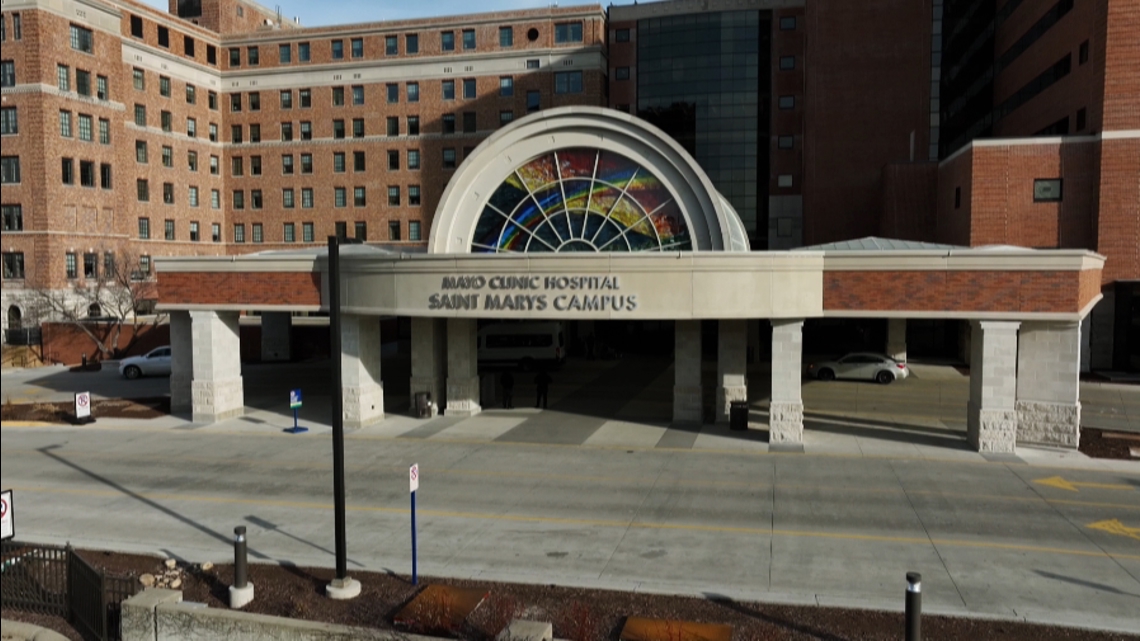

In his medical notes on the day of the surgery, Dr. Villavicencio wrote, “we thought the bleeding came from microscopic tears from the aortic root perfusion in the OCS.”
“Does this event give you any concern about the use of OCS for other donor hearts?” he was asked during his deposition.
“Well, it gives me a concern, of course,” he replied. “You know, we remember our bad experiences.”
Chapter 8
I don’t want bad publicity
The FDA has a database called “MAUDE” (Manufacturer and User Facility Device Experience) that encourages medical professionals to report issues related to medical devices. It’s designed to be an early warning system to flag potential problems with medical devices to protect other patients.
KARE 11 reviewed reports filed in MAUDE. We found nine reports about the OCS device. But in the year and a half since Noah died, there is no report matching Noah’s failed transplant.
In a deposition last August, the lawyer representing Noah’s family questioned the Mayo surgeon about whether he had reported the case.
“Have you written or are you intending to write a case report or anything else about this case?” Brandon Thompson asked.
“Well, there have been at least two doctors in training at the Mayo Clinic that have wanted to report this case. And I suspected it could have legal implications, so I told them to wait,” Dr. Villavicencio replied.


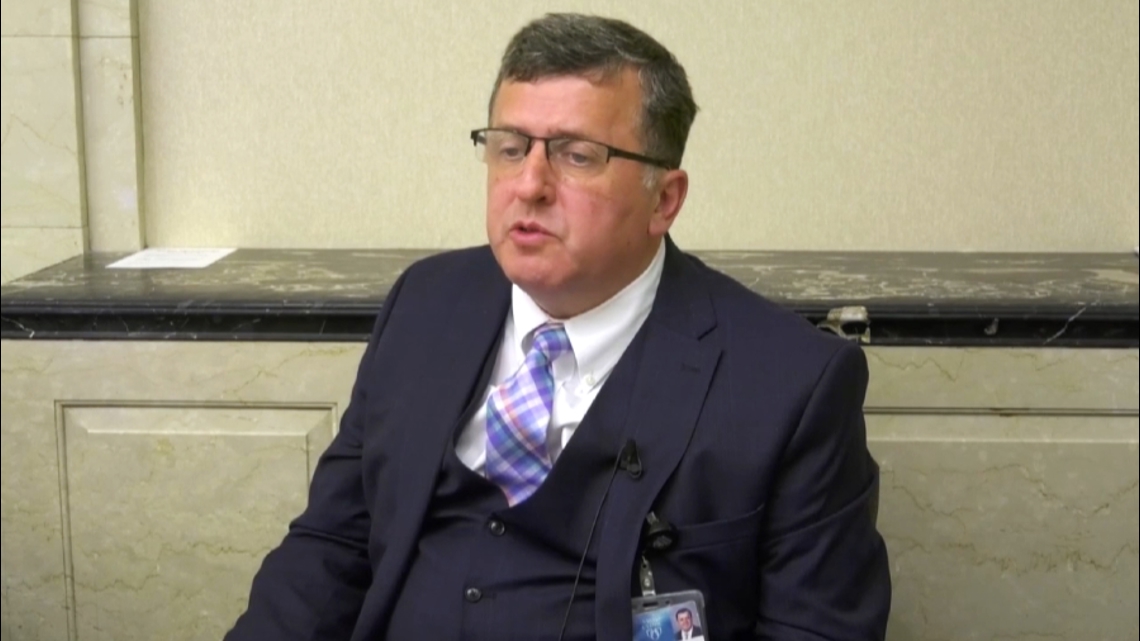

Thompson followed up, asking: “And legal ramifications are – you don’t want there to be a case report that’s going to be out there in the newspaper?”
“Well, I – I don’t want bad publicity certainly,” the Mayo doctor said.
Thompson, the family’s attorney, thinks Mayo is putting public relations over patient safety. “Quite frankly, I don’t know how else to interpret that answer,” he told KARE 11.
In court papers, Mayo calls the publicity accusation “false” and contends there was not enough evidence to report it to the FDA.
Dr. Villavicencio also testified he had not reported the incident to TransMedics, the OCS manufacturer because he “wanted the dust settled” before telling other people.
Asked how long he’s waiting for the dust to settle, Dr. Villavicencio told Noah’s lawyer, “Until we’re finished with your claim.”
When KARE 11 contacted TransMedics, the company said they couldn’t comment about any communications with Mayo. However, TransMedics founder and CEO Waleed Hassanein wrote: “To our knowledge, the clinical phenomenon you describe in your note doesn’t appear to be related to our OCS technology …” He hypothesized the heart bleeding may have been caused by “Marphan [sic] Syndrome or other connective tissue diseases” in the donor.
Chapter 9
Mayo Clinc response
KARE 11 requested interviews with Mayo Clinic and the doctors involved. Instead, a Mayo representative sent the following statement:
We extend our deepest condolences to the family during this difficult time.
Mayo Clinic takes seriously the responsibility to ensure that patients who receive an organ have the best possible outcome. We follow applicable medical standards of care, guidance of national organizations that oversee organ donation and procurement, and the privacy rights of organ donors who give the ultimate gift to patients.
As stated in the publicly available court filings: The patient had been cared for by Mayo Clinic for 10 years, was critically ill, experiencing advanced heart failure, and in need of prompt transplantation. The transplant team carefully selected a donor heart that was suitable for this patient according to standards followed by transplant centers around the country.
We empathize with the patient’s family and respect their right to pursue their claims in court.
We intend to defend this case through trial and are confident the jury will find that the care given to this patient was appropriate and full informed consent was provided. The care team followed applicable medical standards of care, guidance of national organizations that oversee organ donation and procurement, and the privacy rights of organ donors who give the ultimate gift to patients like this one.
We will not comment further at this time. Court documents are accessible on the federal courts’ PACER system. Mayo’s opposition to the motion to seek punitive damages is at docket Nos. 61-65, and Mayo’s motion for discovery is at docket No. 37.

